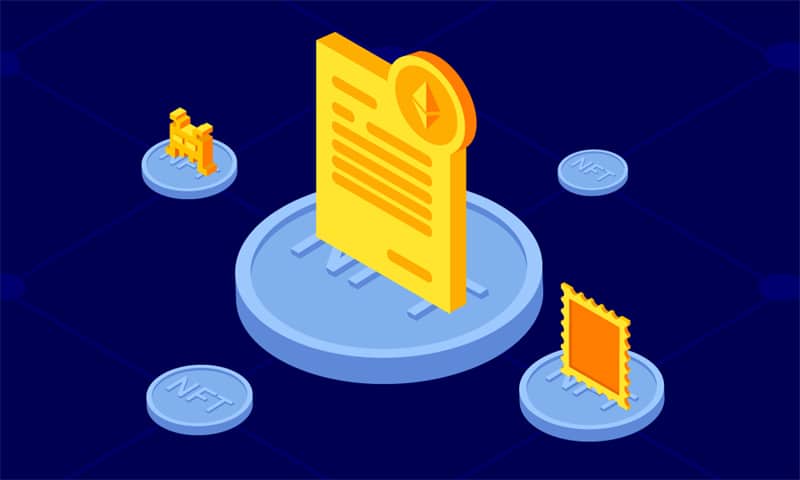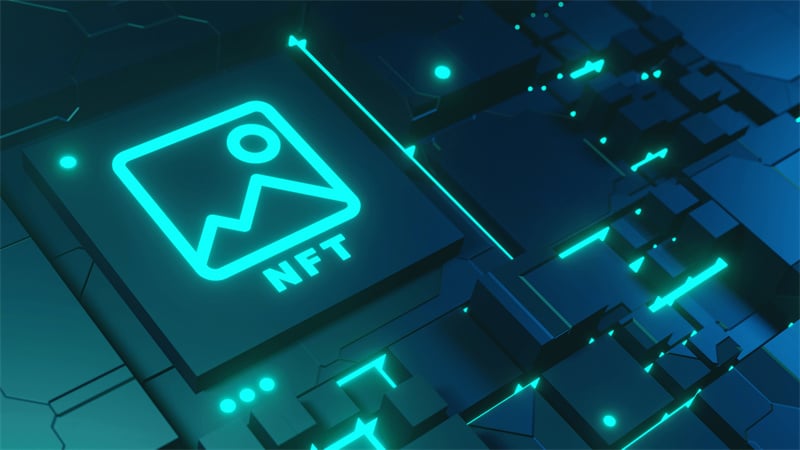
Non-fungible tokens, or NFTs, as they're mostly called, have taken the digital world by storm. Much like bitcoin, the popularity of NFT continues to grow daily, and more people are interested in joining the digital marketplace.
However, once you get into the NFT space, you'll realise that it's a lot more complicated than it seems, and many of its hyped projects are low-budget scams. Despite this, NFT remains a fast-growing market, and knowing how to choose the right projects could lead to a big payoff.
Both new and experienced NFT users have to be careful when buying and selling their NFTs. Here are some of the common mistakes that NFT users make;
1. Not Securing Your NFTs

According to an article from the Cointelegraph, multiple NFT users have been scammed out of 100 million worth of non-fungible tokens (NFTs) since July 2021. And these numbers are predicted to keep rising.
Having a reliable NFT wallet, like a DeFi wallet, is key to managing your NFTs and keeping them safe. It also provides a convenient way to buy and store NFTs without risking being hacked.
With an NFT-enabled DeFi wallet, you can transfer your precious NFTs and use them as a security shield for long- and short-term investments. All purchased NFTs are assessable through your DeFi wallet, and you can monitor their value.
2. Viewing NFTs as a Short-Term Money-Making Investment
Many people enter the NFT market looking for an easy money-making avenue.
If you're confident in the value of your NFT, it's definitely worth investing in it long-term before selling it. Don’t worry about price fluctuations; NFT value is constantly shifting, and even the best projects have their highs and lows.
You could end up making massive profits by sticking with a valuable NFT. You also stand the chance of one of your NFTs becoming part of a future blue-chip project.
3. Buying Cheap NFTs
Most NFTs are indeed very expensive to purchase, especially blue-chip NFTs that sell for hundreds of Ethereum (Eth). Investors may try seeking new, cheaper NFTs as an easy way out, but this does not work.
A Futurism article revealed that one of the largest online NFT markets recently disclosed that around 80 percent of NFTs in their marketplace were spam and fraud. You’ll soon discover that most low-priced NFTs are scams or low value. And by the time you've discovered this, you've already invested in it.
Before purchasing any NFT, research the project online and learn about its creators. If you're planning on being a serious NFT investor, it’s worth spending on collections you value, as this can yield a big payoff.
4. Day Trading NFTs

This is very common among new NFT users. Day trading NFTs involves purchasing an NFT and selling it the next day for a profit margin. Some investors can buy multiple NFTs within a day just to flip them for profit in a few hours.
While this could work, you’re more likely to end up losing lots of money. NFT prices are always shifting, and something you bought expensive today could be worth as little as 0.01 Ethereum tomorrow. Instead of doing this, consider buying NFTs from creators you admire and value their work. This way, you’re in it long term until the market turns in your favour.
5. Not Understanding NFTs and How They Work
Another big mistake beginner investors make is jumping into the NFT market with little to no knowledge of how it works or how to invest. This leaves you open to multiple security threats and the possibility of wasting hard-earned money on a dormant NFT.
The first thing you need to do is to find yourself a good NFT wallet; this is where you will store all the NFTs you purchase. DeFi wallets are great for NFTs because of their flexibility,
Some people may own multiple DeFi wallets and split their NFTs between them based on categories. The next step is reading up on NFTs; learn what they are, how to use them, where to invest, etc. You could even take online courses from experienced NFT investors.
You also need to understand how cryptocurrency works and read up on Blockchain. It may seem like a lot of work, but it’s worth having this knowledge, especially as the NFT market grows more competitive every day.
6. Purchasing NFTs from Scam Links
Cybercriminals have been having a field day with NFTs. They use the popularity to their advantage by sending out bogus links advertising fake NFT projects. Once buyers click on them to purchase them, they could have their wallets hacked and completely depleted. You could also risk buying a fake, invaluable NFT.
Remember to only click links shared by the NFT project management on their website or social media. Be even more careful on social media sites like Twitter and Discord, where the NFT community is big, but hackers are also very prevalent.










